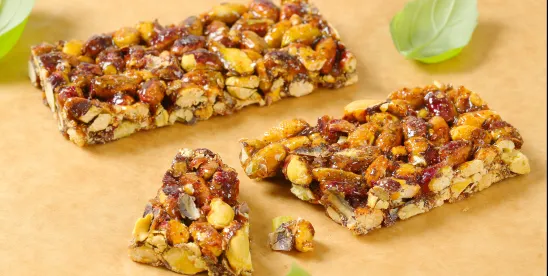Think you’re being healthy when you reach for that KIND bar in the middle of your workday?
We won’t say yes or no—since the U.S. Court of Appeals for the Second Circuit has recently declined to opine on what “all natural” means—or to hear from experts on the matter.
On May 2, the Second Circuit held that the U.S. District Court for the Southern District of New York did not err in throwing out a class action suit against KIND, LLC based on the use of the term “all natural.”[1] The company, of course, markets, advertises, and distributes snack foods including that Caramel Almond & Sea Salt bar that got you through the afternoon.
The district court granted KIND’s motion for summary judgment in September 2022, holding that the plaintiffs (consumers) had failed to establish how a reasonable consumer would understand the term “all natural.”
“The District Court held that this was fatal to plaintiffs’ claims, because without showing how a reasonable consumer understood the term, the plaintiffs could not explain how or why they were materially deceived,” a three-judge panel of the Second Circuit wrote, in a 32-page opinion. “In reaching this conclusion, the District Court granted KIND’s motion to preclude two of plaintiffs’ expert opinions from the summary judgment record, and granted KIND’s motion to decertify the class.”
The plaintiffs—who sought damages pursuant to common law and to New York, California, and Florida consumer protection and false advertising laws— appealed the district court’s decision, to no avail. They had filed suit in 2015, after the U.S. Food and Drug Administration (FDA) issued a warning letter challenging KIND’s statement on product labels as “healthy and tasty.”
The FDA withdrew those objections in 2016, yet plaintiffs’ class action lawsuit eventually centered on the term “all natural,” pointing to five separate definitions of the term and 11 ingredients that plaintiffs claimed were “non-natural.” Three purported classes of plaintiffs were located in New York, California, and Florida.
The Second Circuit noted that, to prevail on their state law and consumer protection claims, plaintiffs had to demonstrate: 1) a deceptive act; 2) materiality; and 3) injury. On appeal, the only issue was deception, governed by a reasonable consumer standard. Deceptive acts, under this standard, are defined “objectively” as those “likely to mislead a reasonable consumer acting reasonably under the circumstances.” The reasonable consumer standard, the Second Circuit pointed out—citing the Ninth Circuit—requires not just a mere possibility, but a “probability that a significant portion of the general population of the general consuming public or of targeted consumers, acting reasonably in the circumstances, could be misled.”
No Genuine Dispute
The Second Circuit held that plaintiffs’ evidence was insufficient to generate a genuine dispute of material fact for trial as to consumer deception. In this regard, plaintiffs attempted to rely on “expert” consumer surveys that were little more than one-sided questions designed to elicit answers that supported plaintiffs’ theory of liability. The report of an expert chemist was also correctly excluded, as it did not assist the trier of fact and did not opine on whether the ingredients met the definition of the term “All Natural” as understood by a reasonable consumer. The Second Circuit also rejected the plaintiffs’ contention that, even without the experts, they presented sufficient evidence for a trier of fact to conclude that KIND’s products are not “All Natural,” due to the presence of artificial/synthetic ingredients.
Takeaways
Two important lessons for class action lawyers on both sides can be gleaned from the Second Circuit’s decision. First, if you are confident your client is right on the merits, a failure to prevail at the motion to dismiss and class certification stages should not discourage you from completing discovery and moving for summary judgment. Second, particularly in consumer deception cases such as this, expert survey evidence is crucial. Undermine the experts’ “evidence,” and you can defend the case.
Epstein Becker Green Staff Attorney Ann W. Parks contributed to the preparation of this post.
ENDNOTES
[1] The case is Bustamante v. KIND, LLC, 2024 WL 1917155 (2d Cir. May 2, 2024).





 />i
/>i
